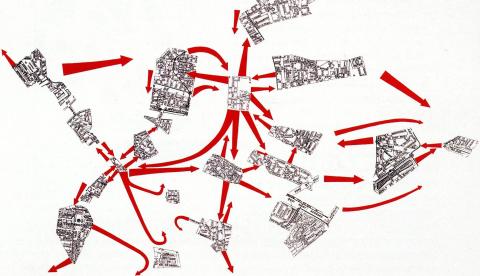Reading the City
This course will consider how nineteenth-century literature helped transform the city into the symbolic nerve center of modern social life, and it will follow the changing shapes of urbanism across contexts and into the present. Our focus will be on artists’ and social scientists’ varied efforts to make the internal dynamics of cities perceptible, whether in still or moving images, sound, maps, lyric poetry, or narrative. We will consider the paradoxes of urban representation: scenes of unity and of alienation, newfound freedom and new forms of oppression, total knowledge and impenetrable mystery, enforcement of social norms and their violation. To make sense of these conflicting meanings, we will examine what versions of the city take shape in fiction by Charles Dickens, Edgar Allan Poe, Honoré de Balzac, Virginia Woolf, Richard Wright, Sam Selvon, and Ling Ma; poetry by William Blake, William Wordsworth, Charles Baudelaire, Walt Whitman, and Edna St. Vincent Millay; social theory by Friedrich Engels, David Harvey, Brenda Yeoh, and Davarian Baldwin; photography, film, and contemporary writing and media. We may discuss the practice of spectatorship, the poetics and politics of urban space, urban cartography, architecture and infrastructure, cities as sites of racialized dispossession and class warfare, representations of crowds and of close encounters with strangers, gender and sexuality in the street, new modes of perception and cognition, scientific analyses of built environments, struggles for housing and education justice and rights to the city, and a range of artistic responses to the world-transforming and uneven conditions of modernity. Requirements include active participation, a short critical essay, and a final paper or project.
-
Sector III: Arts & Letters (AUAL)

 Department of English
Department of English
